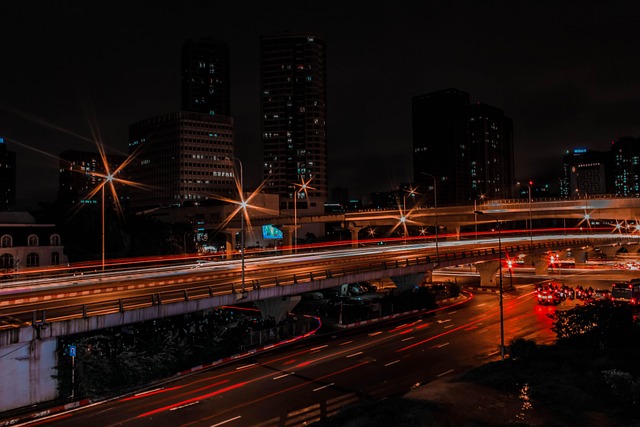In Pakistan's financial hub, Karachi, electricity load shedding—a strategic tool to manage soaring energy demands—disrupts daily life on Khalid Bin Walid Road. This issue causes productivity losses, financial strain, and social challenges for residents and businesses. Smart grid technologies and renewable energy are proposed solutions to enhance power distribution efficiency. Karachi needs robust infrastructure development, efficient load management, community conservation, and public awareness campaigns for a stable and sustainable future.
In the bustling metropolis of Karachi, irregular electricity supply has become a persistent issue, particularly impacting areas like Khalid Bin Walid Road. This article delves into the complex problem of electricity load shedding, exploring its causes and consequences in depth. We analyze the specific challenges faced by residents and businesses along Khalid Bin Walid Road and present potential solutions to mitigate this growing concern. Understanding these factors is crucial for a more stable and reliable power supply in Karachi’s ever-growing urban landscape.
- Understanding Electricity Load Shedding in Karachi
- Impact and Challenges on Khalid Bin Walid Road Area
- Potential Solutions and Future Outlook
Understanding Electricity Load Shedding in Karachi

Electricity load shedding, a common occurrence in many parts of Pakistan, including Karachi’s bustling streets along Khalid Bin Walid Road, is a phenomenon that requires understanding. In simple terms, it refers to the controlled disruption of electricity supply to certain areas or regions during peak demand periods or when the power generation capacity is strained. This practice is often employed by the local utility providers to prevent total blackouts and ensure a more stable power distribution across the city.
Karachi, as Pakistan’s financial hub and one of the most populous cities in South Asia, faces unique challenges regarding electricity supply. The rapid urbanization and ever-growing energy demands have put immense pressure on the existing infrastructure. Load shedding becomes a strategic tool to manage this situation, aiming to strike a balance between meeting the city’s energy needs and maintaining a reliable power grid.
Impact and Challenges on Khalid Bin Walid Road Area

The frequent electricity load shedding in the Khalid Bin Walid Road area of Karachi has had a significant impact on the daily lives of residents and businesses alike. The unpredictable power cuts disrupt routines, affect productivity, and can lead to financial losses for local enterprises, especially those relying on electricity for their operations. Students preparing for exams or professionals working from home are also among the affected, highlighting the broader social and economic challenges caused by this issue.
This problem has created a complex web of challenges for the community. Local businesses may struggle to maintain consistent service, while residents face inconveniences such as disrupted communication, lighting, and heating/cooling systems. The lack of reliable electricity can also hinder investment and development in the area, impacting Karachi’s overall growth trajectory. Moreover, the constant need for backup generators adds to the financial burden on both businesses and households, making it a pressing matter that demands immediate attention from relevant authorities.
Potential Solutions and Future Outlook

Karachi, as a bustling metropolis, faces unique challenges regarding electricity load shedding, particularly in areas like Khalid Bin Walid Road. However, there are potential solutions to mitigate this issue. Implementing smart grid technologies can enhance distribution efficiency and enable real-time monitoring, reducing power outages. Encouraging renewable energy sources, such as solar panels, could also alleviate the burden on traditional power plants.
Looking ahead, a future outlook includes more robust infrastructure development to meet the growing energy demands of Karachi. Efficient load management systems and community-level initiatives for energy conservation can significantly contribute to stabilising power supply. Moreover, public awareness campaigns can educate residents on responsible energy usage, fostering a culture of sustainability in this vibrant city.
Electricity load shedding, a persistent issue in Karachi, particularly affects areas like Khalid Bin Walid Road. This article has explored the challenges posed by intermittent power cuts, highlighting their impact on daily life and businesses. While the current situation presents difficulties, there is hope for improvement through potential solutions such as infrastructure upgrades, renewable energy integration, and efficient distribution networks. By focusing on these strategies, Karachi can move towards a more stable and reliable electricity supply, enhancing the quality of life for its residents.







Leave a Reply
You must be logged in to post a comment.